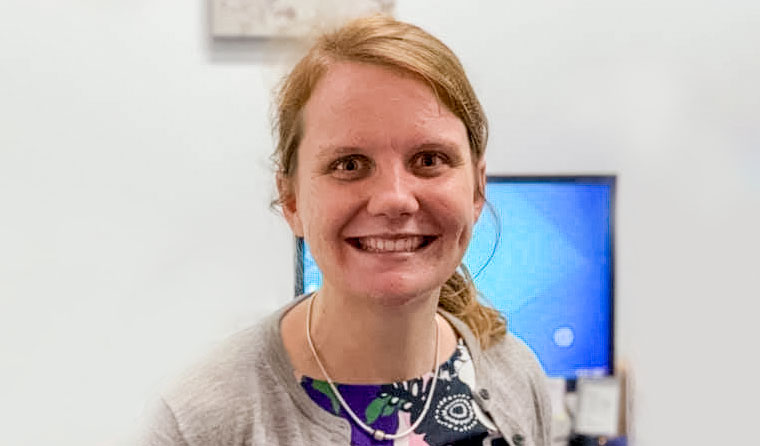News
Newly funded research examines emotional burden of diabetes
The research aims to understand Australian GPs’ current practice, knowledge, opinions, barriers and facilitators to assessing diabetes distress.
 According to new research, the psychological impacts of diabetes are often overlooked as part of the condition.
According to new research, the psychological impacts of diabetes are often overlooked as part of the condition.
‘I have always cared for people with chronic diseases. My first job as a medical intern in 2014 was with a nephrology team, following that general medicine, palliative care, endocrinology and now as a GP.’
That is Dr Rita McMorrow, recipient of the 2020 RACGP Foundation/Diabetes Australia Research Grant for her project, ‘Assessing and addressing diabetes distress in Australian general practice: A mixed method exploratory study of current practice’.
Dr McMorrow is also recipient of the 2020 Walpole Grieve Award to travel to the Steno Diabetes Centre, Copenhagen, an opportunity for international research collaboration.
As a New Fellow, Dr McMorrow is currently undertaking her PhD at the University of Melbourne with the Data Driven Quality Improvement Team in the Department of General Practice.
Her research aims to understand Australian GPs’ current practice, knowledge, opinions, barriers and facilitators to assessing diabetes distress. This information will be used to co-design solutions with Australian GPs to assess and address diabetes distress in general practice.
Dr McMorrow said her project comes at a particularly fitting time, with the COVID-19 pandemic contributing to concerns for patients neglecting regular care for chronic conditions, including diabetes.
‘With COVID-19, headlines reported the increased risks for people with chronic disease, particularly people living with diabetes,’ she told newsGP.
‘Lockdowns occurred … and people with diabetes were even more isolated and living with the fear of increased risks if COVID-19 was contracted.
‘I discovered a psychological response never spoken about in medical school, clinical training in hospitals, or postgraduate general practice training – diabetes distress.
‘Diabetes distress describes the emotional burden of living with and managing diabetes.’
 Dr Rita McMorrow hopes her research will enable more discussions about diabetes distress between people with type 2 diabetes and their GP.
Dr Rita McMorrow hopes her research will enable more discussions about diabetes distress between people with type 2 diabetes and their GP.
This year also marked the 25th anniversary of the World Health Organization/International Diabetes Federation St Vincent’s Declaration Action Program for diabetes recommendations for encouraging psychological wellbeing among people with diabetes.
Dr McMorrow noticed a gap in diabetes research on the psychological impacts.
‘Despite 25 years of research and increasing evidence, diabetes distress impacts on diabetes outcomes – like glycaemia – more than depression,’ she said.
‘The term diabetes distress or its management did not appear in my training as a doctor.
‘This sparked my interest to explore whether other GPs’ knowledge and experience of the psychological aspects of diabetes is similar to my own, and how we can co-design a solution to enable discussion about diabetes distress to happen between people with type 2 diabetes and their GP.’
Through international collaboration and a multidisciplinary team with expertise in general practice, clinical psychology and public health, Dr McMorrow will explore Australian GPs’ current practices for assessing diabetes distress.
The team will also examine the experiences of people with type 2 diabetes, including their needs and expectations of emotional support in diabetes care provided in general practice. This knowledge will then be used to develop, in partnership with GPs and other primary healthcare professionals, a digital health solution to enable diabetes distress to be assessed and addressed in general practice.
‘This research will inform the development of a digital health solution to support the assessment of psychological health as part of diabetes care into routine general practice, further enabling person-centred care and discussion of the psychological aspects of living with diabetes in general practice,’ Dr McMorrow explained.
Dr McMorrow also won the 2019 Alan Chancellor Award for her project ‘Does r-CGM affect health service utilisation?’ – an opportunity she feels helped her progress in her research pursuits.
‘Winning the [2019] award was a real honour to have the work from my academic registrar position acknowledged,’ she said.
‘It gave me confidence in my ability as a researcher and through encouragement for great mentors to apply for these grants. It also helped me develop a research track record in general practice research, which contributed to me being successful with the [2020] Walpole Grieve and Diabetes Australia grants.’
The full list of 2020 RACGP Foundation grant awardees is available on the Foundation website.
The Foundation grants will be acknowledged as part of the RACGP National Awards Ceremony at GP20, Friday 20 November, 7.00 pm.
The RACGP’s Diabetes handbook also includes a section on mental health and type 2 diabetes, incorporating diabetes distress.
Log in below to join the conversation.
diabetes GP20 mental health RACGP Foundation research
newsGP weekly poll
Are you interested in prescribing ADHD medication?